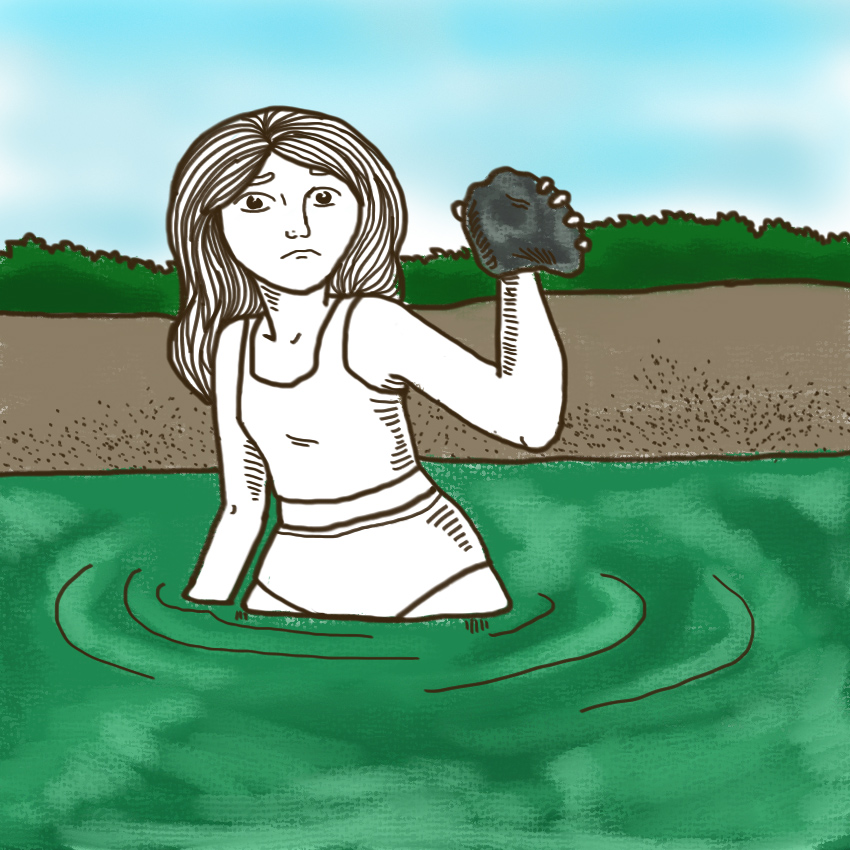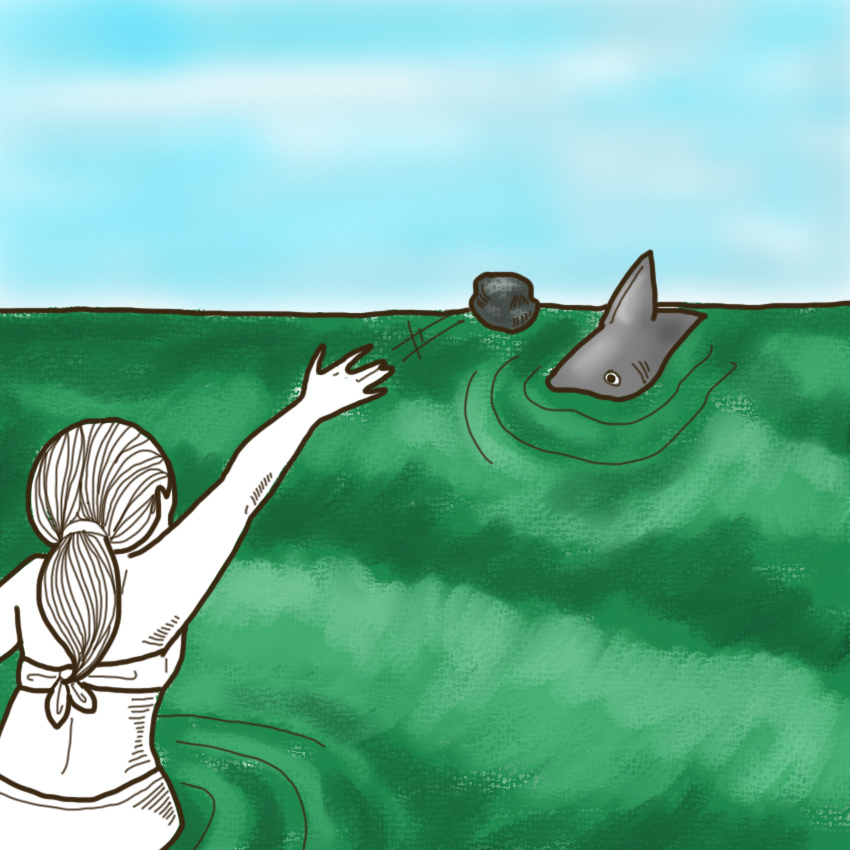Few creatures in or out of the water elicit as much fear as sharks. Their many rows of jagged teeth and carnivorous appetites keep plenty of people on high alert when enjoying water activities.
According to National Geographic, the number of great white sharks migrating to summer towns like Cape Cod is on the rise. Still, your chances of being attacked by a shark are slim to none.
In fact, shark attacks are incredibly rare. You're more likely to meet your maker in a freak air freshener accident than in an encounter with Jaws.
Despite the low risk, shark encounters can still happen. It's comforting to be aware of how to handle the situation, no matter how unlikely.
If you ever find yourself in a situation where you are sharing the water with a shark, there are actions you can take that will help protect you, and the shark.
Thumbnail Photo: Wikimedia Commons
Why You'll Probably Never Be Attacked By A Shark

As mentioned, the chances of you actually being attacked by a shark are not high.
According to the Worldwide Shark Attack Summary, 2016 saw 84 instances of unprovoked shark attacks around the globe.
That may sound like a lot, but as we know, shark attacks are incredibly unlikely.
Most shark attacks are simply a case of mistaken identity. NOAA explains that sharks have been patrolling the oceans for many millions of years, and that we are not part of their regular diets.
Still, it's important to know how to act in the very unlikely event that a shark mistakes you for the seal or fish that he would prefer for dinner.
Step 1: Calmly And Quickly Get Out Of The Water, If Possible

If you notice a shark in the water, you cannot be blamed for being alarmed or having a violent reaction.
With that said, it is in your best interest to remain as calm as possible and move through the water smoothly and slowly.
NOAA explains that "if a shark sees a human splashing in the water, it may try to investigate, leading to an accidental attack."
If possible, it's best to calmly exit the water in this situation, and to avoid drawing attention to yourself.
Step 2: If Not, Stay Calm And Don't Make Any Sudden Movements

Of course, the chances of sharing the water with a shark are more likely when you are in deeper, more open water, where an exit strategy might be easier said than done.
In this case, make sure to stay calm and cool, and never thrash around in the water. Tread water calmly in the direction of land or a boat, and make no sudden movements.
Step 3: Stay In Front Of The Shark

Although it might sound scary, the best way to avoid a shark attack is to stay in front of the animal, and to maintain eye contact if he comes too close.
CNN Travel explains that since sharks are ambush predators, facing the shark the whole time he is circling you could reduce the likelihood of an attack by about half.
Besides, people aren't too appetizing to sharks, so if he recognizes you as something unpalatable, he's less likely to attack.
Step 4: Call Loudly And Calmly For Help

Making sudden movements and sounds is a definite no no.
With that said, it is important to signal for help, or to let others around you know what's going on so they can come to your aid.
Avoid the urge to scream, and loudly and calmly call for help from nearby swimmers or boats passing by. Pitching your voice low will help the sound carry further and attract more attention.
Step 5: Make Yourself As Big As Possible, Or Curl Into A Ball

If you're unable to get away from the shark, you are going to have to go into survival mode.
If a shark is circling or zig-zagging, he is likely in attack mode. In this case, it's a good move to make yourself as large as possible, according to CNN Travel.
A shark is less likely to attack a larger creature that might be a threat to them.
On the other hand, if a shark doesn't seem super interested in you, or is just swimming by, it's a good idea to curl into a ball so you don't come off as a threat, or worse, a seal.
Step 6: Slowly Back Away

At this point in the encounter, the shark will have hopefully lost interest in you.
This is when it's time once again to slowly back away toward shore, or the boat that you came from.
Remember to keep the shark in your line of sight, and don't let him circle behind you.
Step 7: If Necessary, Find A Weapon

If the shark is still intrigued, it might be time to find a weapon. This could be anything from a camera to a rock, or even a flipper.
In the event that there are no weapon options within reach, your fist is probably your best bet.
Remember, unless you are absolutely out of options, you should just use this weapon to cause a shock of pain and scare the shark away.
Step 8: Aim For The Eyes And Gills

If all else fails, it might be time to fight back against the shark.
Keeping the shark in front of you will help give you direct access to the animal's most sensitive areas.
The old wisdom goes that you should punch a shark in the nose to scare him, but National Geographic explains that the shark's most vulnerable areas are actually the gills and the eyes.
Use your weapon or fist to discourage the shark from putting up a fight by hitting him where it hurts. With any luck, the shock will scare him off and give you time to get away safely.
Remember: Sharks Are Misunderstood, Essential, And Endangered

As scary and threatening as sharks may seem to humans, it is no comparison to how dangerous we as humans are to them.
According to NOAA, many species of sharks are endangered due to overfishing for their meat, fins, and organs for exotic medicine.
The shark population also isn't helped by the way they are portrayed by the media in films like Jaws.
In reality, sharks are not man-eating monsters, but rather fellow apex predators just trying to survive and do their part for the ecosystem.
Without sharks, food chains would collapse, and the future of the ocean and its creatures would be unclear.
If you are ever lucky enough to encounter a shark, bear this in mind and remember that he probably doesn't want to hunt or hurt you.
Keep calm, and only defend yourself if necessary. He's more scared of you than you are of him.
Please make sure to SHARE this helpful information with your friends and family!




